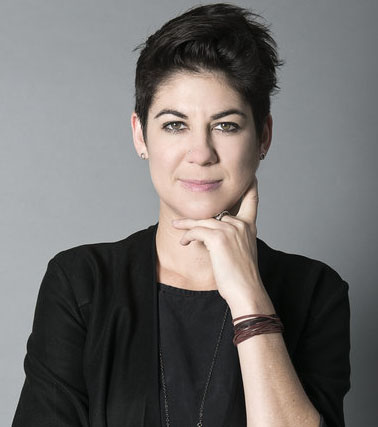COMMENT: Designer Leyla Acaroglu introduces a diagnostic toolkit to help organisations develop strategic pathways to a more sustainable future
If the Covid crisis has taught businesses anything, it's that being prepared for change is crucial. Recently, I conducted a foresight review of the forces driving sustainability in the workplace, and a fascinating insight emerged: workers are hungry for change.
Intranet company Unily commissioned me to explore how climate change and Covid are transforming workplaces this decade. The published report, Decade of Disruption: Future of the Sustainable Workplace in the Age of Covid-19 and Climate Change, offers insights into the megatrends and microforces challenging businesses to change.
In August 2020, we commissioned Censuswide to survey 2,000 UK office workers so we could better understand the current pulse of workplace culture: 72% of multigenerational respondents stated that they were concerned about environmental ethics. However, with an astounding 83% of workers reporting their workplaces were not doing enough to address climate change, it’s become clear that there is a massive gap between rhetoric and action.
Workers want to feel that their employers are aligned with their values and actively taking action
Traditional organisational change is enacted from the top down. But increasingly, demand for change is being driven from within. We found that workers don’t just care about climate change on a personal level; they want to feel that their employers are aligned with their values and actively taking action.
Almost two-thirds (65%) of our survey respondents said that they were more likely to work for a company with strong environmental policies. Climate change, human rights and social equity are all issues of growing importance, especially for millennial employees, who now make up the majority of the workforce.
These internal demands for climate-positive action are forcing a transformation of workplace culture. Gone are the days of simply writing aspirational sustainability reports and not integrating it into the DNA of business operations. Workers are raising their voices and flexing their individual agency to speak up and demand transformative, tangible change. It’s not simply a passive desire for management to change either; 63% of employees expressed the desire to learn more green skills so that they can become more valuable in the workplace.

My team and I went on to perform a trend analysis of the micro-transformative forces influencing workplace culture, in which we uncovered 12 key drivers for change. These included: value-aligned work, worker activism, flexible work-life balance, green jobs, digital transformation, working less (but better), living buildings, the post-disposable movement, climate-positive change, proactive leadership, circular transformation, and business model redesign.
These are all interconnected, but some forces have been magnified by the transitions that Covid forced, while others are a bit more obscure. For example, when worldwide lockdowns were imposed to help flatten the curve, we quickly learned how workers could adapt to working from home, reducing the need for business travel and demonstrating the decreased need for office space.
The coinciding rise of telecommunication technologies has accelerated the shift to diverse work-life scenarios customised to meet both the employees’ and the employers’ needs, saving money and offering a more fulfilling work-life balance.
Being climate positive is about pioneering leadership and redesigning the way we do nearly everything
This particular example has brought many businesses to a crossroads of sorts, one where a journey of discovery lies ahead for many – not only in responding to the shifts in workplace dynamics, but in their organisation’s ability to respond to the climate crises.
Being climate-positive involves activities that go well beyond just achieving zero-carbon emissions or being carbon-negative – it’s about pioneering leadership and redesigning the way we do nearly everything. Proactive leaders have the strategic foresight to acknowledge that change across all business activities is inevitable.
There is, for many, a steep learning curve. To help overcome the inertia experienced by this, we created a diagnostic toolkit that helps develop a strategic pathway for change.

It begins with a quick self-assessment by responding to eight key questions about how employees and customers view the company, and what steps have or need to be taken to establish a benchmark for progress. Based on your score, you can review the four pathways of action. From just starting out through to leading the way, the four stages offer guidance on what actions should be taken to create more sustainable outcomes.
The diagnostic toolkit offers a framework for organisations to create intrinsic change, respond to the climate crises, address workers’ desires for more value-aligned organisations and benefit from innovation.
Although Covid has commanded our attention in 2020, the decade ahead will not be defined by this global pandemic alone. Instead, it will be about the people who see this as a wake-up call – those leaders who stepped up to take action on the coinciding crises of climate change, plastic waste pollution and ecosystem destruction.
This report shows how external forces aren’t the only ones demanding climate-positive transformation; so are the most important stakeholders – the people who show up every day to do the work and move the economy forward. And so, taking on these disruptions as opportunities to re-design how we do business will of course result in business gains. But more importantly, it will help create the trajectory for a future-proof, sustainable economy that works better for us all.

Leyla Acaroglu is an award-winning designer, UNEP Champion of the Earth, sociologist, and entrepreneur. She developed the Disruptive Design Method and designs cerebrally activating experiences, gamified toolkits, and unique educational experiences that help people make the status quo obsolete. Leyla is the founder of Disrupt Design, the UnSchool and the CO Project Farm.

